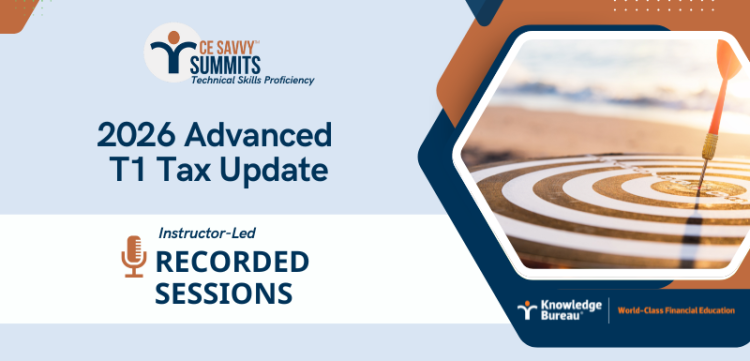Last updated: February 17 2026
Understanding the OAS Clawback

Seniors don’t take kindly to the clawback of their OAS (Old Age Security) especially in these inflationary times, but this can happen, especially if there was an unusual receipt of income during the past calendar year. Here’s what you need to know to explain the consequences for 2025 and 2026:
Excerpted from the T1 Advanced Tax Update Course (click here to enroll)
The Backdrop. If the taxpayer's net income exceeds an indexed threshold amount: 93,454 in 2025 to a maximum net income of $152,062; and the taxpayer receives OAS for the full year, the taxpayer is required to repay the lesser of
- 15% of Net income in excess of the threshold, and
- net Old Age Security (plus net supplements) received
Net income for the purposes of this calculation does not include the deduction for the OAS Repayment Payable or any gain under the debt forgiveness rules or the capital gain resulting from the special tax on the disposition of optioned shares.
Note that seniors who receive less than the standard OAS will have it all clawed back at a lower income level, and seniors who receive a larger OAS amount because they deferred starting the pension can have a higher net income before the benefits are fully clawed back.
It’s also important to point out that for tax year 2026, the clawback will take place when income is between $95,323 to $154,708 (estimated amounts).
The Social Benefits Repayment is deducted at line 23500 and added to taxes payable at line 42200.
Effect on payments receivable. For the following year, from July 1 to June 30, the taxpayer's Old Age Security payments are reduced each month by one-twelfth of the repayment payable. This amount is deemed to be income tax withheld and is reported as such on the taxpayer's T4A(OAS) Statement of Old Age Security for the next year.
Example: OAS Clawback
Issue: Myra's net income for 2025 is $97,000, which includes $8,791.14 in OAS benefits. How much will her OAS cheques be reduced in July 2026?
Answer: Because Myrna's income exceeded the $93,454 threshold in 2025, she will be required to repay the lesser of the OAS she received $8,791.14 and 15% of her net income over the threshold ($97,000 - $93,454). The repayment she must add to her taxes for 2025 is thus 15% x $3,546 = $531.90.
Beginning in July of 2026 her monthly OAS cheques will each be reduced by 1/12 of that clawback or $44.33. When she files her 2026 return, she will include the full OAS amount in her income and a tax credit for the $44.33 monthly income tax withholding.
©2026 Knowledge Bureau, Inc. All rights are reserved. We actively enforce use of our copyrights and trademarks against unauthorized use of any kind by any persons or AI entities. To seek permission, contact us at 1-866-953-4769 or learn.knowledgebureau.com.

